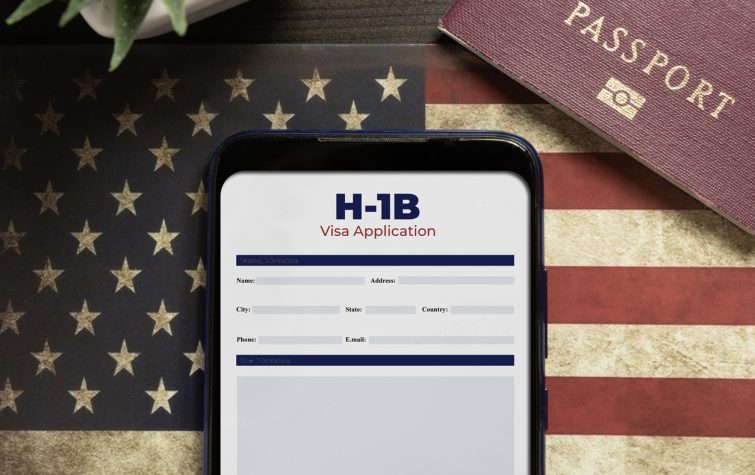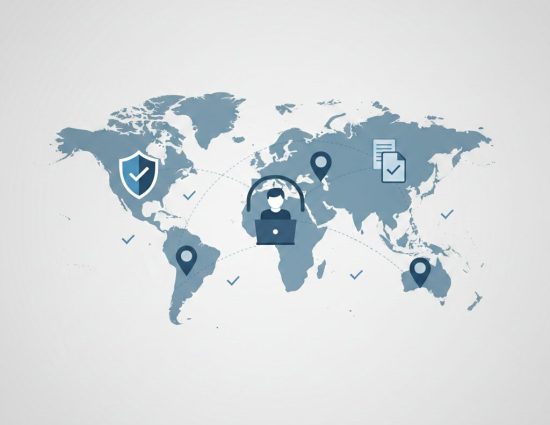H-1B and L-1 Visa Holders At Risk: How a Policy Change Could Impact Global Talent

This blog has been updated to reflect recent policy changes regarding H-1B Visa holders.
The U.S. immigration environment continues to evolve. In February we reported that the current administration was planning to reverse a 2022 temporary rule (made permanent in December 2024) that extended the automatic renewal period for specific work permits, formally known as Employment Authorization Documents (EAD), from 180 to 540 days. This reversal, if implemented, would significantly impact H-1B and L-1 visa holders, professionals in high demand by employers in technology, engineering, finance, and other fields that require specialized skills. It would increase the risk of employment gaps if their work permits expire before renewal is approved. Now the administration has announced an increase in the fee to process H-1B petitions from a previous range of $2,000 – $15,000, to a standard $100,000.
The Implications of Rolling Back the Extension
The 2022 policy was implemented to address USCIS processing backlogs that had reached crisis levels. Extending the automatic EAD renewal period to 540 days allowed foreign workers to continue working without disruption while their renewal applications were pending adjudication, aligning the system with the best interests of both employees and employers. A return to 180 days would once again leave both workers and businesses vulnerable to interruption.
Who Has H-1B Visas — and Where They Work
Latest DHS and USCIS data indicate there are currently around 500,000 H-1B visa holders in the U.S. Country of origin data for FY2024 show:
- 71% of H-1B holders were from India
- 11.7% were from China
- The remaining 17.3% were from a diverse mix of other countries (MSN, 2025)
Note that H-1B visas can be issued for work in any occupation, though the overwhelming majority of H-1B holders are in computer-related occupations, including programming, systems analysis, and other IT positions. In terms of specific employers, recent years have seen H-1B visas issued to individuals working at a range of companies, with the largest numbers of foreign workers at outsourcing firms such as Tata and Cognizant Technologies, as well as major technology employers like Amazon, Microsoft, Google, and Meta. Universities, financial services firms, and manufacturers are other leading sources of H-1B visa demand.
Salaries and Economic Considerations
Median salary data provides further context for understanding the role H-1B workers play in the economy. The FY2024 data shows:
- Newly approved H-1B holders in computer-related occupations had a median salary of $101,000
- More experienced H-1B workers had a median salary of $135,000
- For comparison, the median household income in the U.S. was $83,730 in 2024 according to U.S. Census Bureau data.
With this context in mind, it is no surprise that the U.S. administration’s recent plan to charge applicants a $100,000 fee to process H-1B petitions has drawn sharp criticism. The fee represents nearly the total first-year salary for the median newly approved H-1B holder.
Context: Recent H-1B Policy Changes and Uncertainty
The proposed changes build upon other recent H-1B program changes, including increased filing fees, adjustments to the selection process, and more stringent compliance requirements. For employers, this uncertainty over EAD renewals, combined with other challenges, will make it harder to plan, retain, and control costs related to hiring and managing their highly skilled international workforce.
How CapRelo Can Help
Policy changes are to be expected in the long term, but disruption does not have to be an inevitability. Through CapRelo’s strategic partnerships with trusted immigration and visa suppliers, we can provide:
- Comprehensive end-to-end relocation management services to help streamline compliance processes and minimize disruption.
- Policy consultation to help employers align their visa strategies with their evolving organizational objectives.
- Employee support services that alleviate stress on affected transferees and their families.
- Ongoing monitoring of immigration policy shifts, with proactive communication to keep employers in the loop.
CapRelo’s end-to-end solutions will help employers and employees stay agile, compliant, and supported even in times of regulatory uncertainty.



